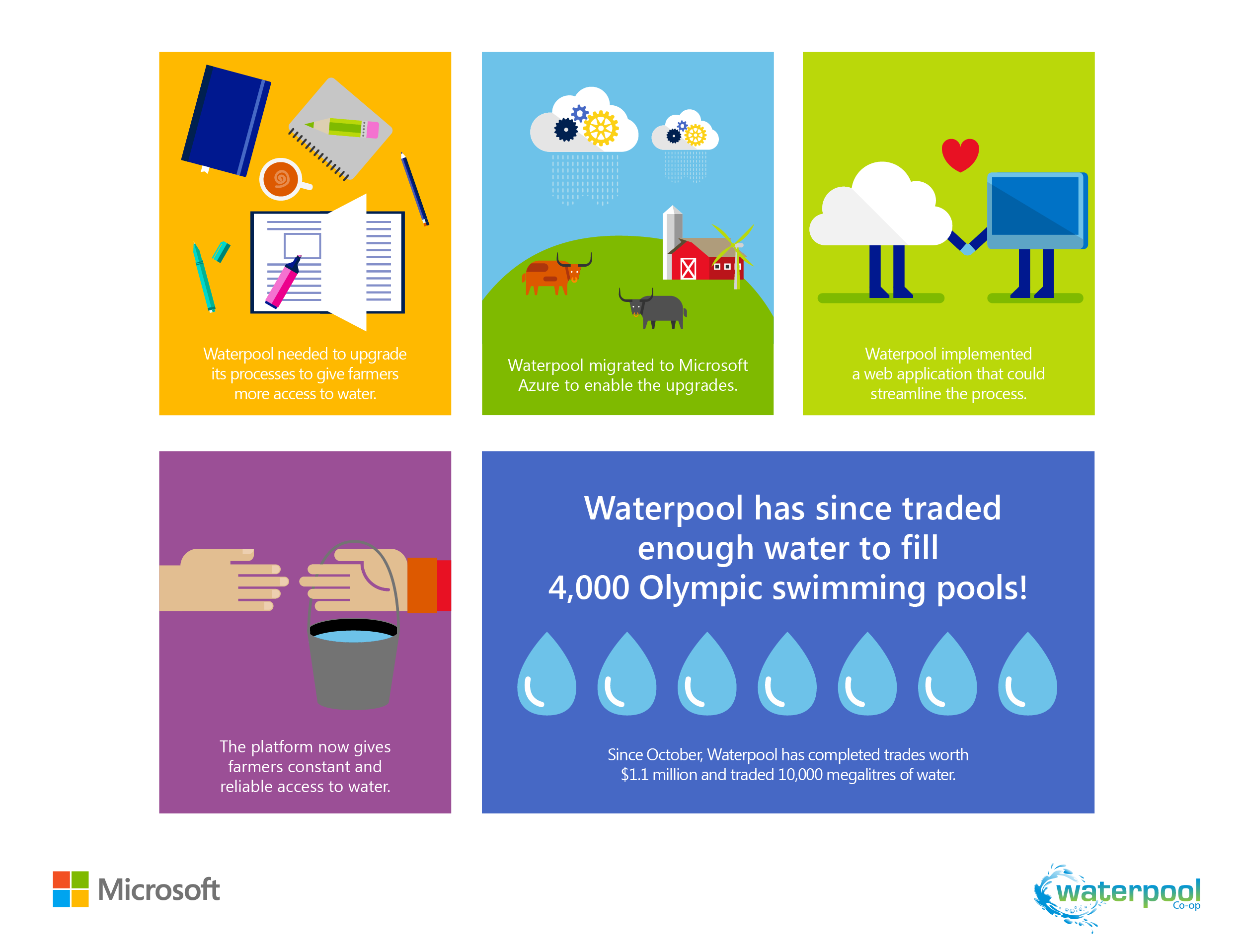 Water is our most precious resource, particularly if you are a farmer in the sweltering heat of Victoria. There, access to water is the difference between growing crops and going broke; it’s that important. And with farming and agriculture taking place on 47% of land in Victoria there is a huge demand for water, especially during the summer months.[i]
Water is our most precious resource, particularly if you are a farmer in the sweltering heat of Victoria. There, access to water is the difference between growing crops and going broke; it’s that important. And with farming and agriculture taking place on 47% of land in Victoria there is a huge demand for water, especially during the summer months.[i]
One of the organisations responsible for managing this demand for water is Waterpool, a water trading exchange that has been running for just three years. In this time Waterpool has established a reputation for being able to provide a quality water trading service catering to the huge demand it receives in times of peak demand.
However, having grown a solid member base, Waterpool noticed trades over its weekly pooled exchange did not always satisfy irrigator’s needs and questioned how it could take the organisation to the next level and provide more farmers with access to water when needed.
“We often receive emergency requests from irrigators who need access to more water, so need to trade over our network. The fact is that when we are processing trades using the pooled exchange there is a time lag,” stated Peter Lawford, CEO of Waterpool. “This is why we looked to build a web-based solution to manage our trades.”
Waterpool turned to Advance Computing, who worked with Waterpool to design build a web-based application that could automate the trading process – throwing away the pen and paper and simplifying the process for the online format. The result was that Waterpool could take more trades, expand its member base and provide more water for more farmers.
One imperative for Advance Computing was for Victorian farmers to be able to trade water at all times. If the system was to ever go offline then farms in emergency still needed to be able to get the water they desperately wanted.
Advance Computing migrated Waterpool’s server from Microsoft Windows Server 2008 to Microsoft Azure, with the knowledge that Azure’s 99.5% uptime meant Waterpool’s exchange would be up and running, giving farmer’s access to their crop’s lifeblood.
Azure’s 99.5% uptime meant Waterpool’s exchange would be up and running, giving farmer’s access to their crop’s lifeblood
Peter Lawford knew the importance of a cloud-based server to both Waterpool and the local farmers, “It was imperative to us to know that if one of our members needed water over the weekend that they could still trade over our exchange. This is why we decided to migrate to Microsoft Azure. The migration was completely painless, most of our employees didn’t even notice, let alone the customers. Now we can go home on the weekend and know that the exchange will be up and running and farmers can be trading.”
This cloud-based system is especially essential, considering that Waterpool don’t currently have access to the National Broadband Network and therefore can’t be certain of connection at all times with traditional servers. Microsoft Azure solves this.
“The fact is, we needed a way of automating and speeding up our trades to become a more agile organisation. With this implementation we can now get water to clients within four hours of the request, and it ensures we can trade water even if we receive a tidal wave of requests all at once,” Lawford explained.
This implementation ensures we can trade water even if we receive tidal wave of requests.
Since the migration to Azure and the completion of the online platform in October, just in time for peak summer season, Waterpool have completed trades worth $1.1million and traded 10,000 megalitres of water – enough to fill 4,000 Olympic swimming pools.
“It has completely transformed the way we work. We are now an always-on service and can always ensure we are providing the local farmers with the water they need,” Lawford summarised. “We were even doing trades on Boxing Day for farmers that had a sudden shortage and were in desperate need. This is the kind of quality service we just couldn’t have provided before, and would’ve left the farmers short.”
[i] http://www.depi.vic.gov.au/agriculture-and-food Converted hectares into Square Kilometres and divided by size of Victoria.




